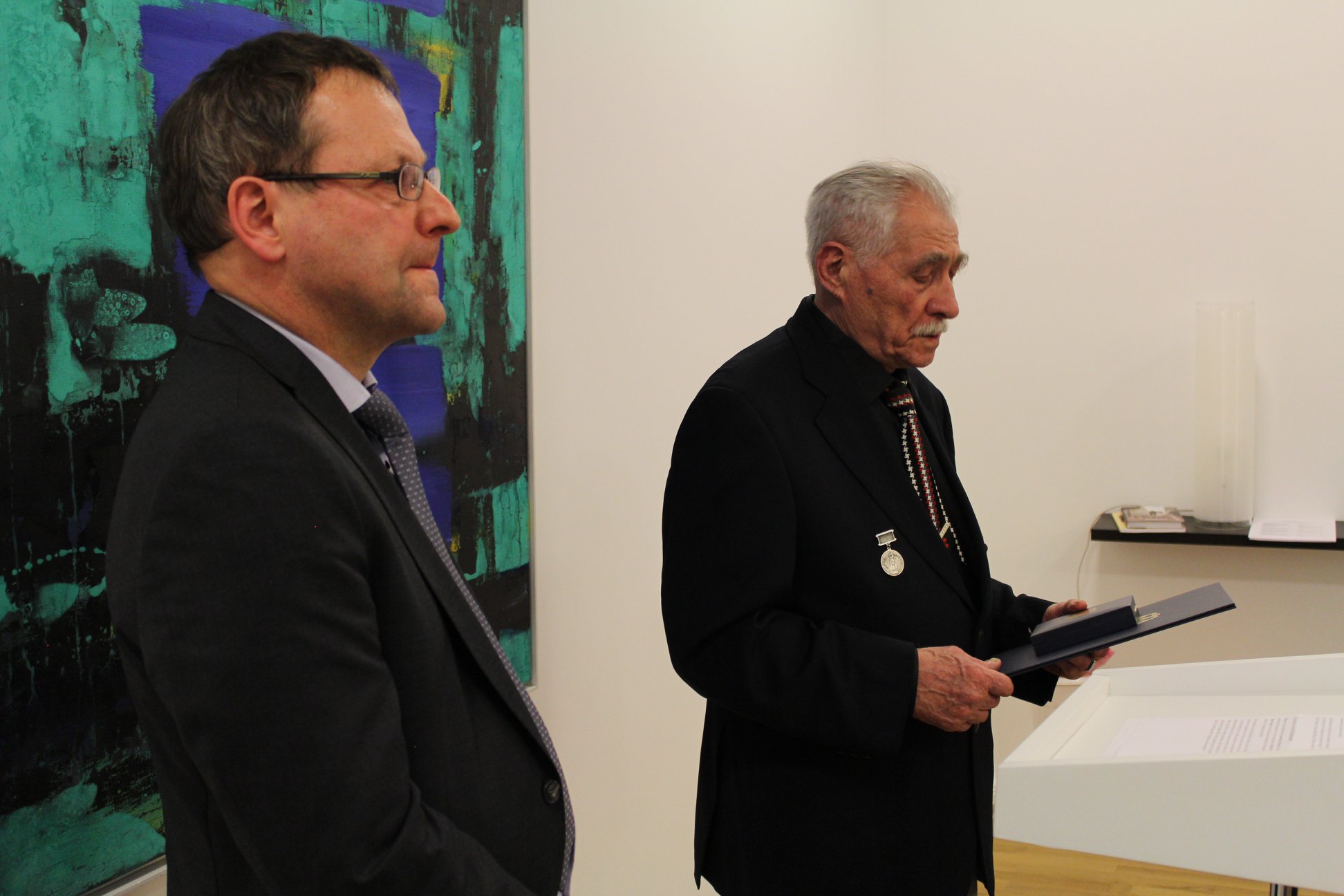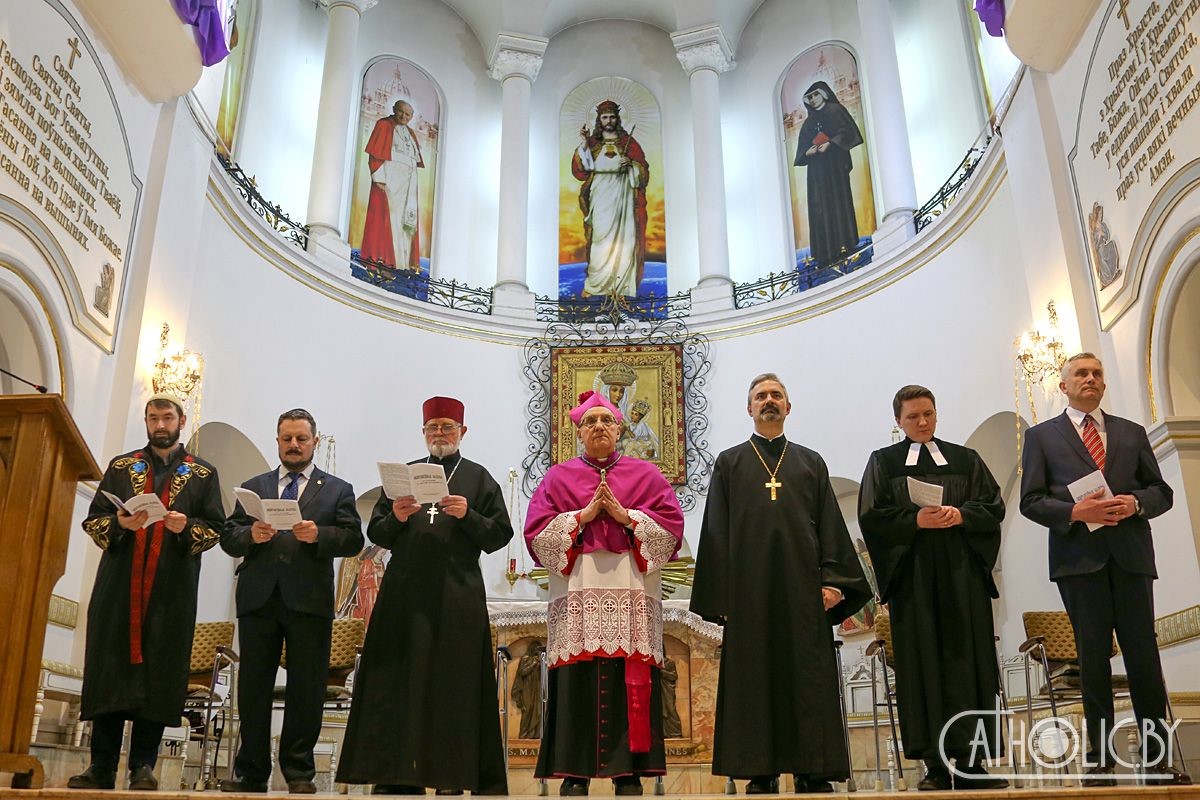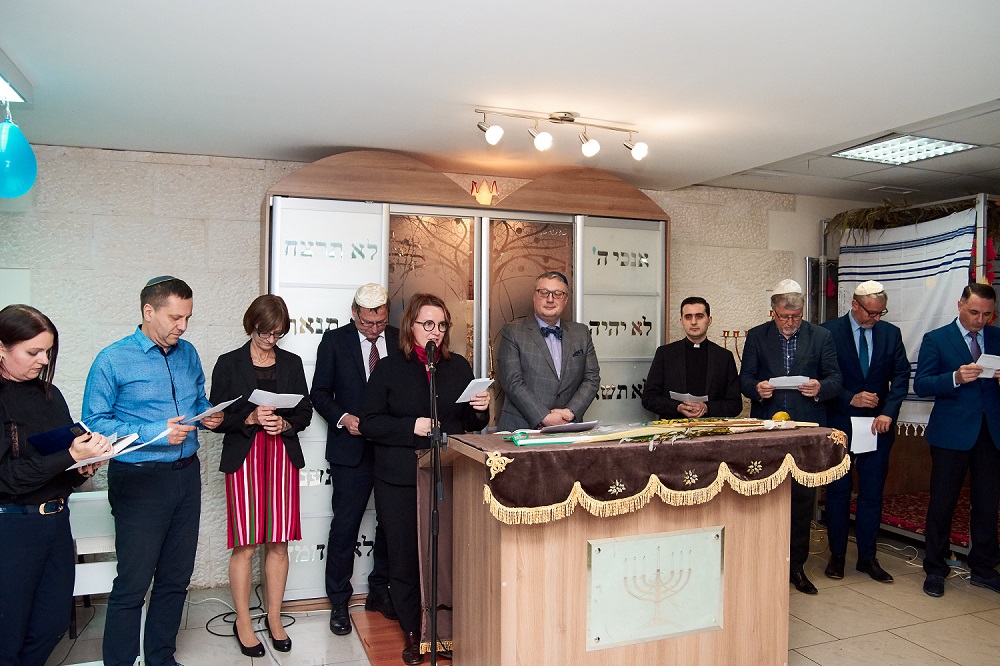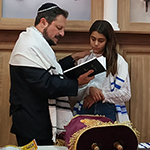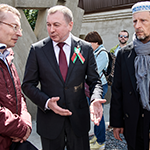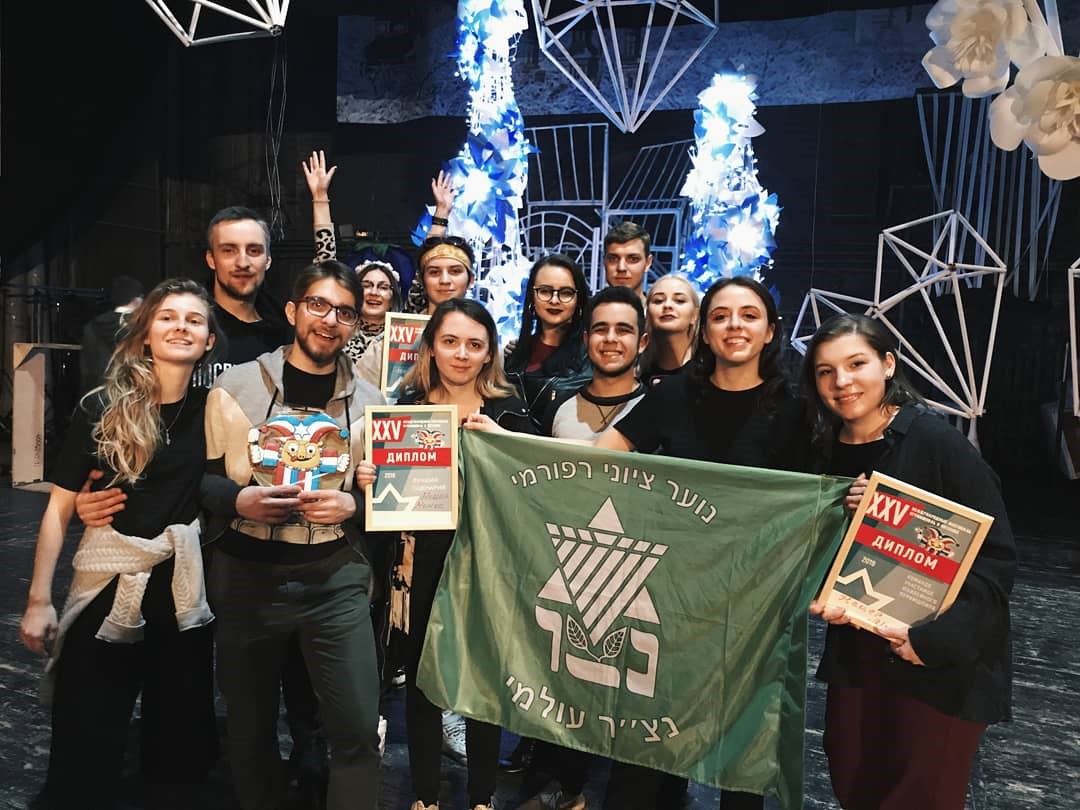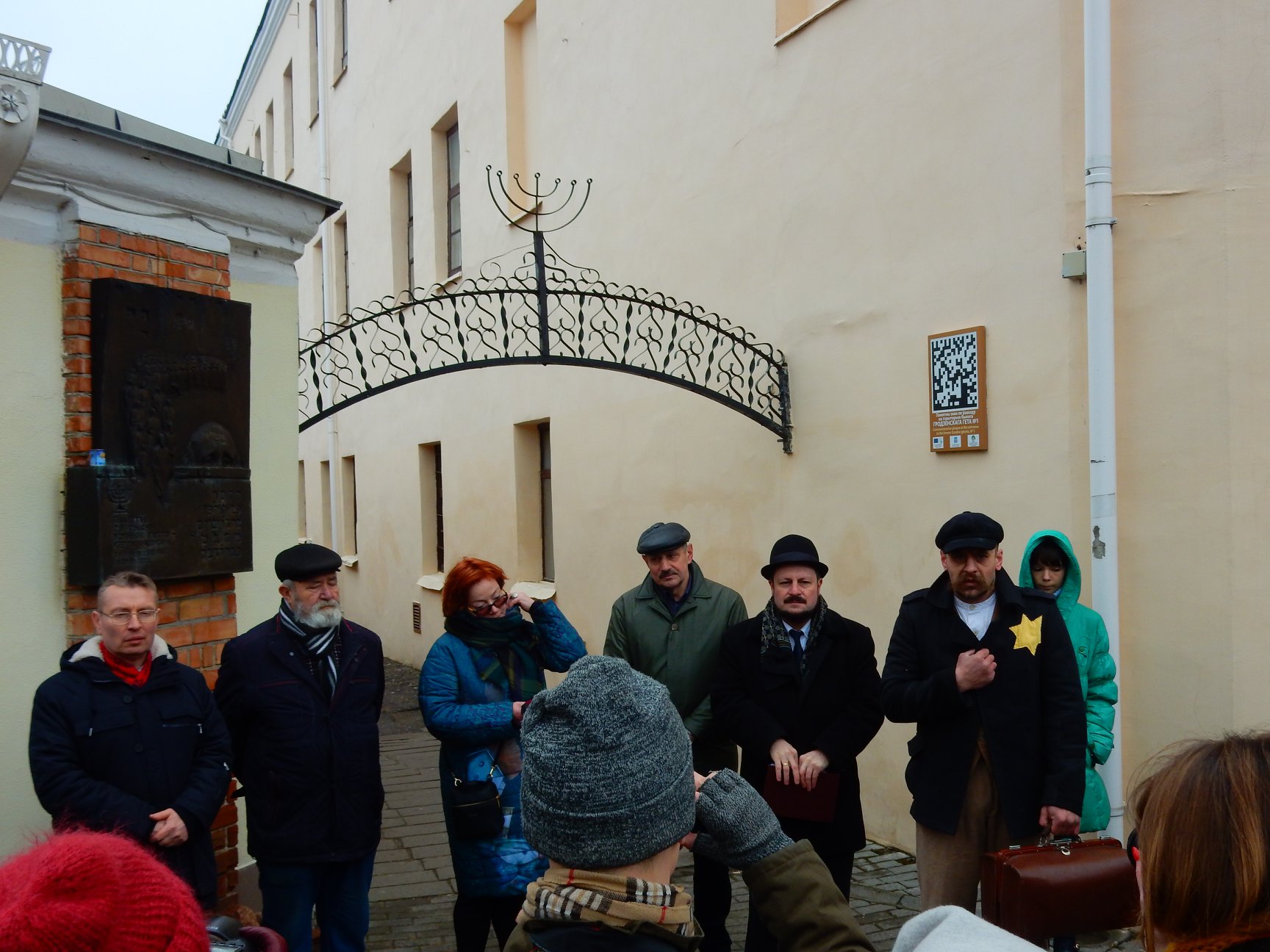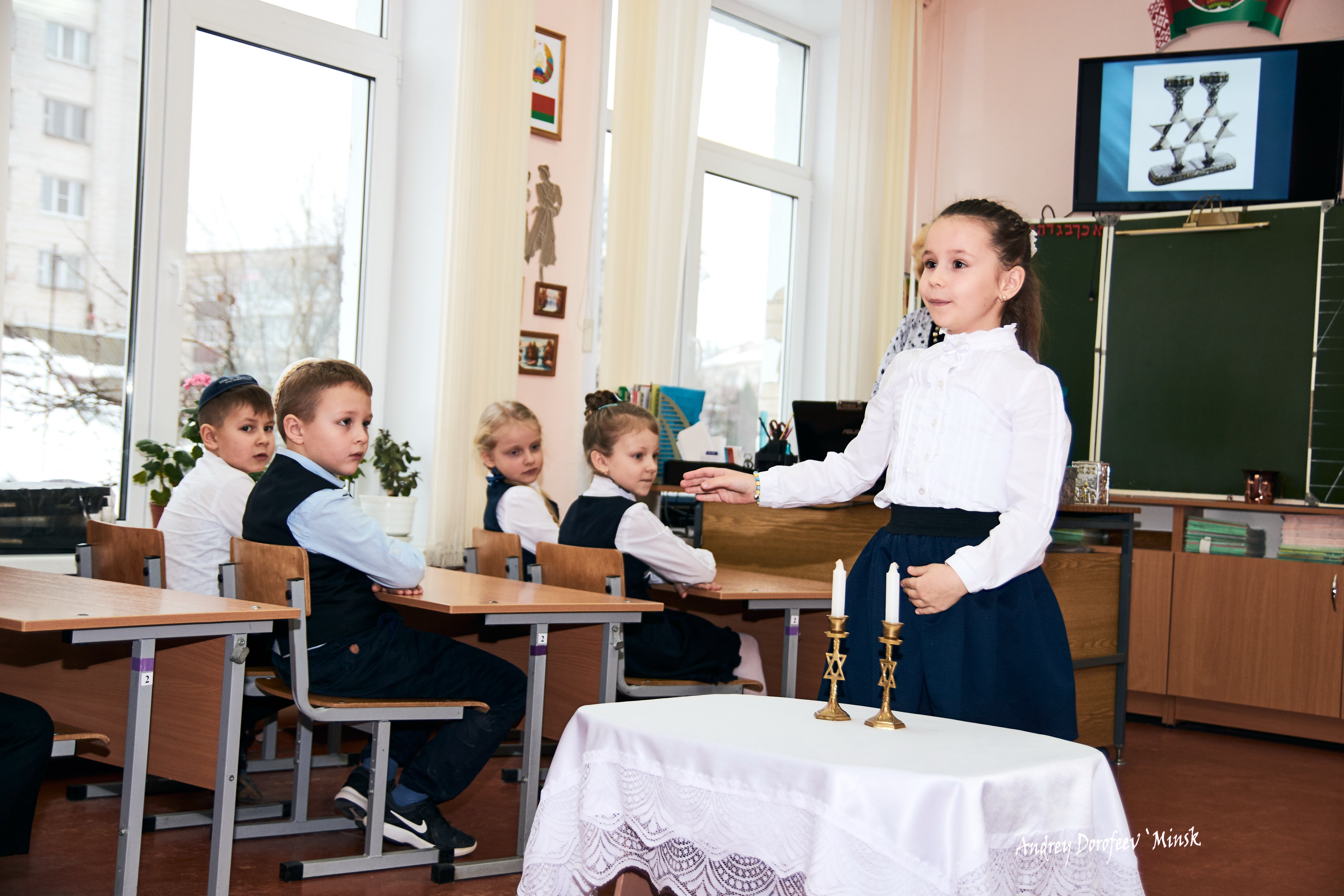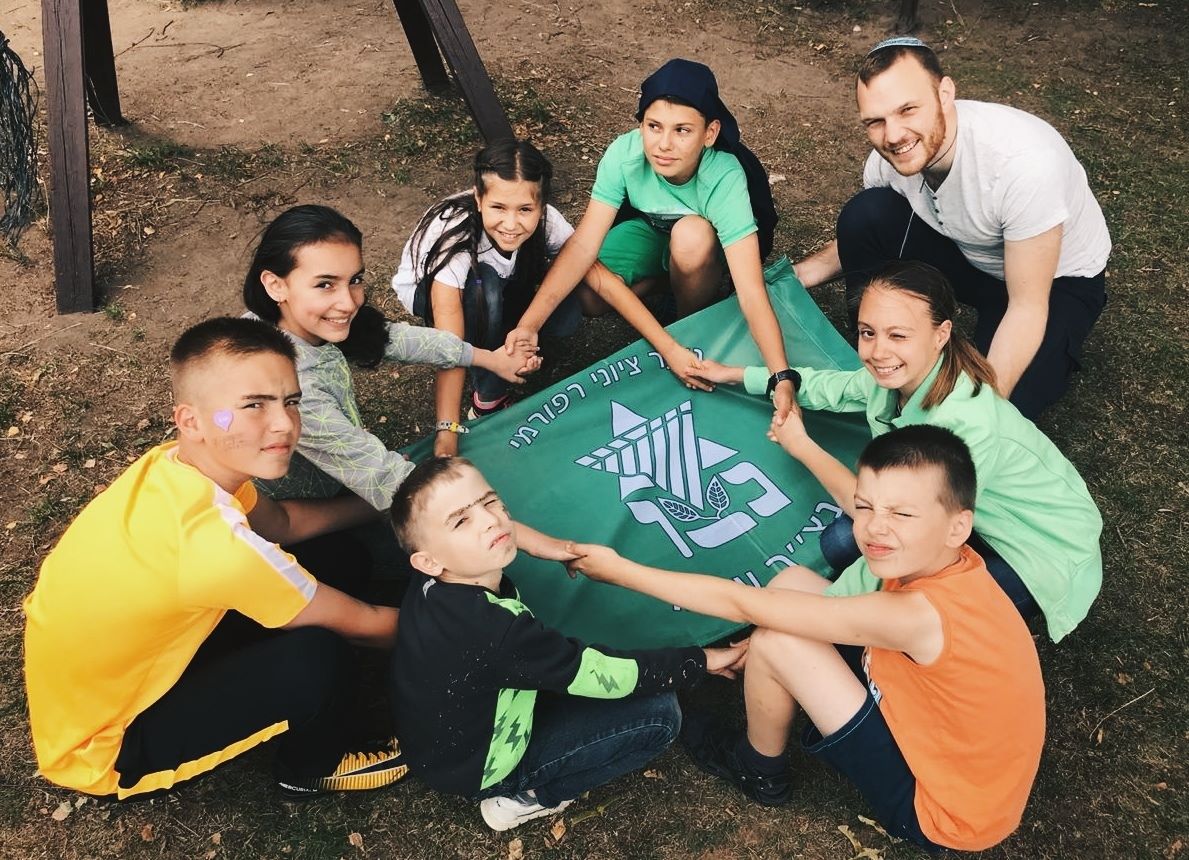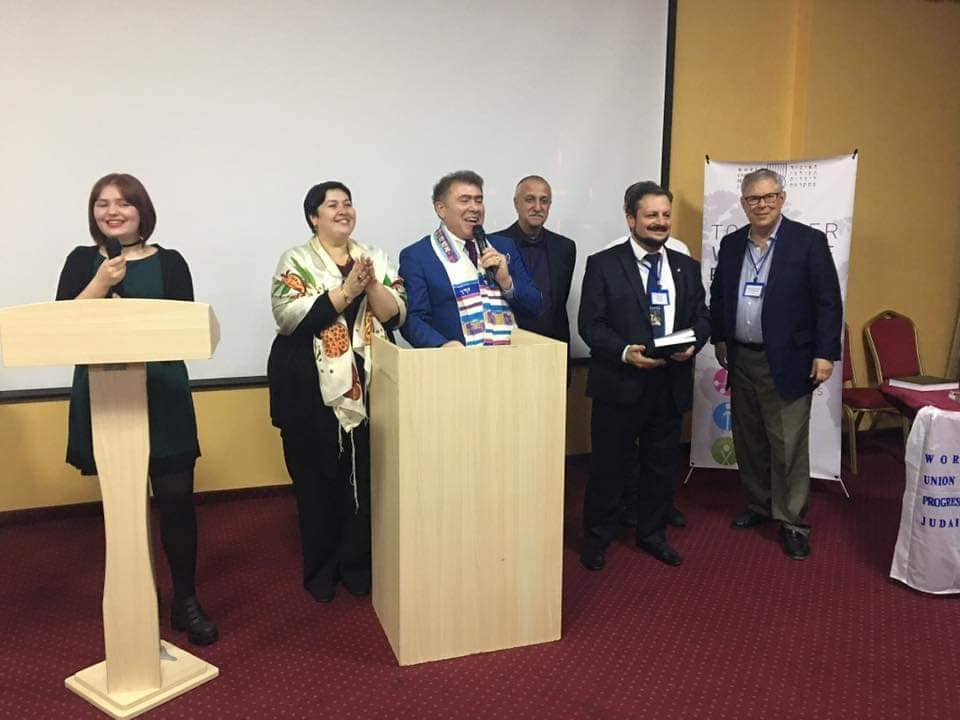Earlier in March, one of the oldest and most respected members of the Beit Simha congregation in Minsk, Yakov Kravchinsky, received a prestigious state award from the Federal Republic of Germany for his dedication to Holocaust education among youth and young adults in Minsk.
On the evening of March 21, Rabbi Grisha Abramovich, representing Progressive Judaism, had the special honor tof being invited to participate in an interfaith prayer session against the Coronovirus along with spiritual leaders and representatives of the Orthodox, Catholic, Lutheran, Greek Catholic, Evangelical and Muslim communities.
During Sukkot celebration in October, the Sandra Breslauer Beit Simha Center in Minsk hosted its annual “Readings in the Sukkah” where guests took part in reading from Ecclesiastes (“Kohelet”) and prayers for peace in eight languages, as by Irina Belskia, Beit Simha’s Jewish educator. Festival participants developed the initiative to create an interfaith text for reflection to read at various memorial services after a peace prayer.
Jerusalem-born Mika Arad, a descendant of the Koschers – one of three Jewish families who settled in Ivye in 1600 – held her Bat Mitzvah ceremony in the Museum of National Cultures, in the gallery on the history and traditions of the Jewish people.
Marking the 75th anniversary of the liberation of Belarus from Nazi occupation during World War II, the capitol city of Minsk, as well as Novogudok, located 150 km southwest, hosted commemorative events for the ‘Memorial Days’ festivities. The anniversary celebration also displayed the resilience of the Jewish community in Belarus that is again robust 75 years later.
Congratulations to Netzer FSU for winning the top three awards at the recent 25th International Purimshpeil Festival in Vitebsk.
For five years, a march dedicated to the memory of the victims of the Holocaust has been held in Grodno. In mid-March, the city remembers people who were killed during the Second World War. Of the nearly 30 thousand Jews who once lived in Grodno, only 200 people survived after the war. Two Grodno ghettos were destroyed on March 12, 1943.
In late January – early February, the Third Pedagogical Conference of Reform Educators brought together 30 educators from Reform congregations in Belarus, Russia and Ukraine to Gomel, Belarus for three days of learning and sharing best practices in early childhood education and Jewish education.
A lifetime of Jewish connections in one summer! The WUPJ 2018 Youth Camping Report highlights the impact of our international camping movement throughout the world, featuring statistics and locations of summer camps, counselors in key countries around the world!
The WUPJ Conference in Odessa was an excellent platform for participants to study and discuss the ideology and mission of our Movement. Representatives of the communities of Russia, Ukraine and Belarus, along with youth leaders and activists from Netzer participated in lively discussions about the future of the movement, about the priorities that we want to set for ourselves over the next two years and expressed opinions on how to build a link between different generations in communities.
